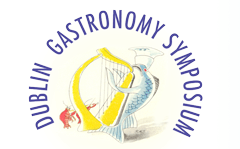Start Date
28-5-2024 4:15 PM
End Date
28-6-2024 4:30 PM
Description
This paper is drawn from a more extensive research project recently undertaken as part of the author’s postgraduate research work. It delves into the heart of Irish food culture and the home, as the central hub of food engagement long before the rise of Michelin restaurants and fine dining. Examining Dublin City from 1950 to 2000, it explores the places, practices, and engagement of ordinary women with food. Through a comprehensive approach, utilizing online surveys, archival research, and oral history interviews, the study uncovers key events and issues shaping Irish women's relationship with food during this period. It identifies four overarching themes: the food of the home, society of the time, place, and change. The food of the home delves into the intricacies of food engagement within domestic settings, including kitchen dynamics, cooking roles, and food traditions. Society's evolution, marked by technological advancements and changing societal norms, significantly influenced women's food practices. Place highlights the central role of supermarkets, local markets, and family-run stores in women's food sourcing and community interactions. Change underscores the impact of globalization, shifting food preferences, and evolving religious attitudes to food engagement. The research underscores the importance of documenting the stories and legacies of ordinary women who shaped Dublin's food culture during this transformative period and highlights the need to recognize and preserve these narratives, challenging perceptions and enriching our understanding of Irish cuisine's roots.
Creative Commons License

This work is licensed under a Creative Commons Attribution-NonCommercial-Share Alike 4.0 International License.
DOI
https://doi.org/10.21427/7nez-1m93
“The Food of the Home”: An Exploration of Place and Practice of Ordinary Women in Dublin City 1950-2000
This paper is drawn from a more extensive research project recently undertaken as part of the author’s postgraduate research work. It delves into the heart of Irish food culture and the home, as the central hub of food engagement long before the rise of Michelin restaurants and fine dining. Examining Dublin City from 1950 to 2000, it explores the places, practices, and engagement of ordinary women with food. Through a comprehensive approach, utilizing online surveys, archival research, and oral history interviews, the study uncovers key events and issues shaping Irish women's relationship with food during this period. It identifies four overarching themes: the food of the home, society of the time, place, and change. The food of the home delves into the intricacies of food engagement within domestic settings, including kitchen dynamics, cooking roles, and food traditions. Society's evolution, marked by technological advancements and changing societal norms, significantly influenced women's food practices. Place highlights the central role of supermarkets, local markets, and family-run stores in women's food sourcing and community interactions. Change underscores the impact of globalization, shifting food preferences, and evolving religious attitudes to food engagement. The research underscores the importance of documenting the stories and legacies of ordinary women who shaped Dublin's food culture during this transformative period and highlights the need to recognize and preserve these narratives, challenging perceptions and enriching our understanding of Irish cuisine's roots.
